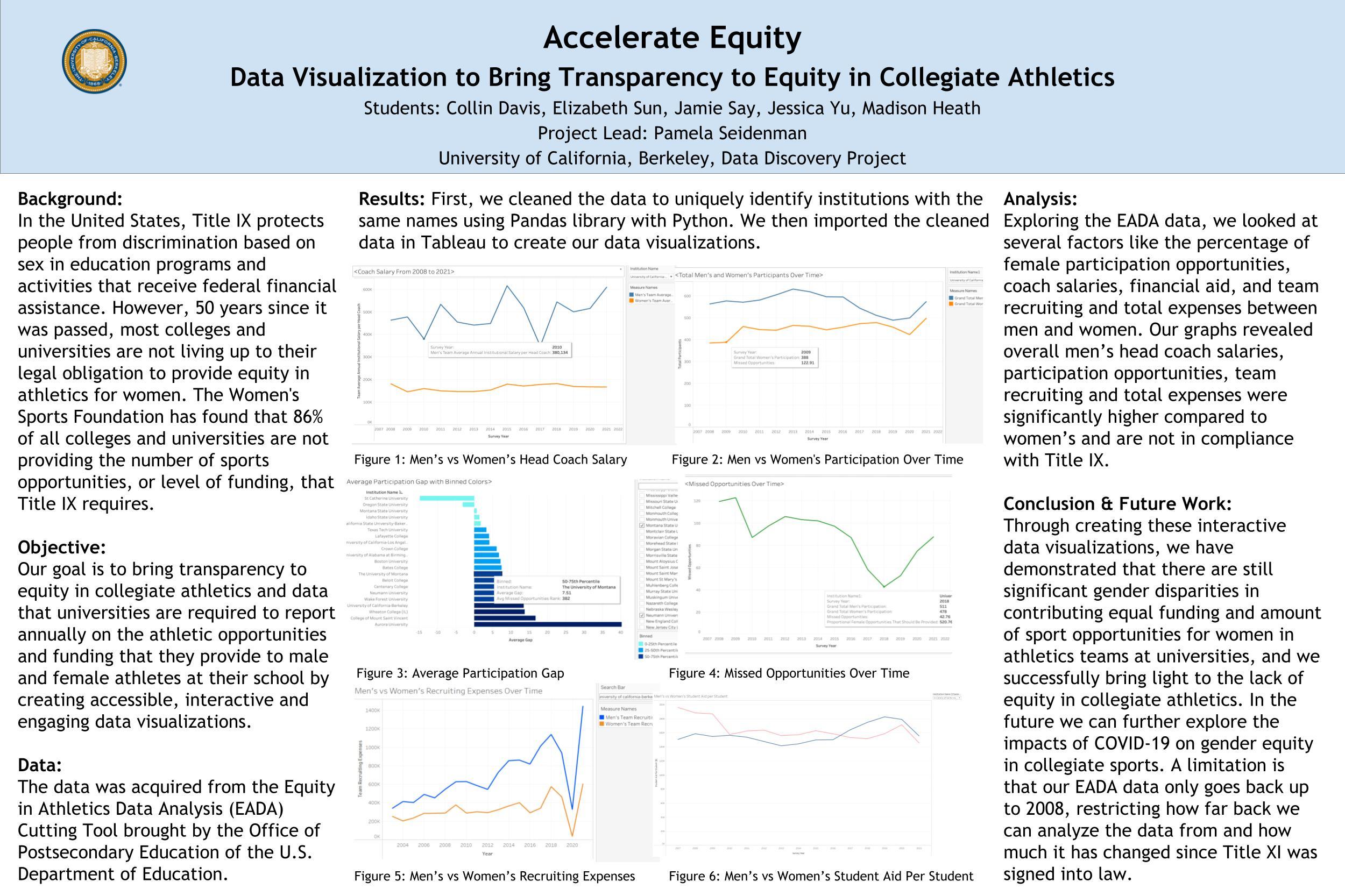Title IX, which prohibits discrimination in education, has brought opportunities to many women and girls. But 50 years in, Title IX’s promise of equity remains far from realized. In fact, most colleges and universities are not living up to their legal obligation to provide equity in athletics for women. The Women's Sports Foundation has found that 86% of all colleges and universities are not providing the number of sports opportunities, or level of funding, that Title IX requires.
Accelerate Equity will harness the power of modern data visualization to bring transparency to data that colleges and universities are required to report annually on the athletic opportunities and funding that they provide to male and female athletes at their school. By making that data accessible, interactive, and highly engaging, Accelerate Equity will bring visibility and attention to how schools are doing in living up to the promise of Title IX.
Data visualization will bring attention to:
★ Schools that are providing sufficient athletic opportunities – and those that aren’t.
★ Whether a fair share of scholarship money is going to a school’s female athletes.
★ Schools that are showing improvement and those who are falling further behind.
★ How schools compare by athletic conference, region, and type.
Once the data is accessible and seen by many, it will make all Title IX educational and advocacy efforts more effective. It can become the basis to celebrate success, encourage improvement, educate, and build the will to achieve equity.
Pam Seidenman is the founder and director of the Accelerate Equity project. She has experience planning and implementing new initiatives, many of them within higher education, as well as fundraising for organizations that use data to drive policy change. She is currently the development director at the California Policy Lab, headquartered at UC Berkeley and UCLA. However, this project is independent of the Policy Lab. She is partnering with non-profit Athlete Ally, and may bring other non-profits into the collaboration.
Colleges and universities are required to report annually to the Department of Education on the athletic opportunities and athletic funding provided by their school to male and female athletes. This data is publicly available through the Equity in Athletics Data Analysis website. However, the website is cumbersome to use, the data is complex, and even for experts in the field of Title IX compliance, it can be difficult to analyze. As a result, this extensive and detailed dataset is used far less often than it might be.
This project aims to create a state-of-the-art, interactive visualization of this data, so that a college or university’s level of compliance is easy to see, along with trends over time, and comparisons across regions, types of schools, and athletic conferences. Creating visibility into the data will inform university administrators, coaches, student athletes, and the general public.
Bringing the data into the spotlight changes the game. But it is just the start. Phase 2 of the project, which falls beyond the bounds of the Discovery project, will use multiple channels to create high-profile visibility for the data – through earned media (journalism), social media, and targeted outreach. In Phase 3, the project will engage various constituencies, to direct energy and attention to those leverage points that are most effective in helping colleges and universities live up to the promise of equity.

